Our first birthday
02 Jun 2022
CUC 1st birthday panel reflections from Dr. Ella Dixon
Panellists:
-
Jed Peisley, Deputy Principal, Kempsey High School
-
Kate Wood-Foye, Director of External Engagement, Charles Sturt University
-
Shirley Kent, Manager, Kempsey Neighbourhood Centre
-
Gerald Hoskins, student of Law and Business, Youth Mental Health First Aid Instructor and Red Dust Healing Facilitator
Questions of poverty, food security, transgenerational trauma, poor mental health, maldistribution of resources and education reduced to employment outcomes that do not adequately prepare future workers for the real needs of the market, were some of the key issues to arise out of the panel conversation. Meeting these materials needs is seen as a key precursor to successful inclusion in higher education for previously excluded persons/sectors of the community.
Along with material inequities, the question of aspiration was discussed as both a matter of cultural capital and role modelling, particularly for those who are first in family and are breaking with generations of disadvantage. Any attempt to nourish aspirations of those traditionally excluded from higher education would have to take place alongside a concerted effort to address the significant material barriers to access and engagement that are compounding this problem.
The impact of low socio-economic status on school-aged students’ low university aspirations was evidenced, as was the need to work with children from an increasingly younger age to capture their imaginations and prepare them for thinking about a future in higher education.
Should these material and socio-cultural aspects be attended to seriously and holistically, there is clearly a pathway to successful completion of higher education and disadvantaged people are seen as extremely successful given the chance.
Resilience was understood as a key driver of success for those who were given adequate support and opportunities to engage in higher education, as well as unlocking individual passions, which are central to the potential that stands to be unlocked through serious attempts to include, as the higher education sector expands. Lived experience was positively viewed as a significant contribution that disadvantaged people can make in solving the endemic and emerging issues at play.
From the perspective of the panellists, the success of higher education in breaking these barriers begins with the presence of the satellite campuses and the CUC, but beyond questions of access, requires community buy-in. The need for greater communication and consultation between higher education providers, community service providers and local businesses would be key to gaining community approval, as would be engaging directly with key stakeholders in the school system. Such relationships could then feed back into university systems for a more targeted and contextualized understanding of the needs/issues at stake.
The suggestion of pooling of resources was raised as one of the first steps that could be taken in fostering the kinds of reciprocal relationships that will be necessary to ensure that success is broadly felt.
Truth telling and recognition of the real history of the region was considered fundamental in the process of addressing endemic issues and healing community. Empowering people with the language and the cultural capital to successful engage in and negotiate spaces and processes that affect our town’s narrative and future opportunities is one of the ways that higher education can be transformative, as are the economic and material benefits of growing industries and greater skilled employment opportunities.

0 Comments
There are currently no comments, be the first to leave one